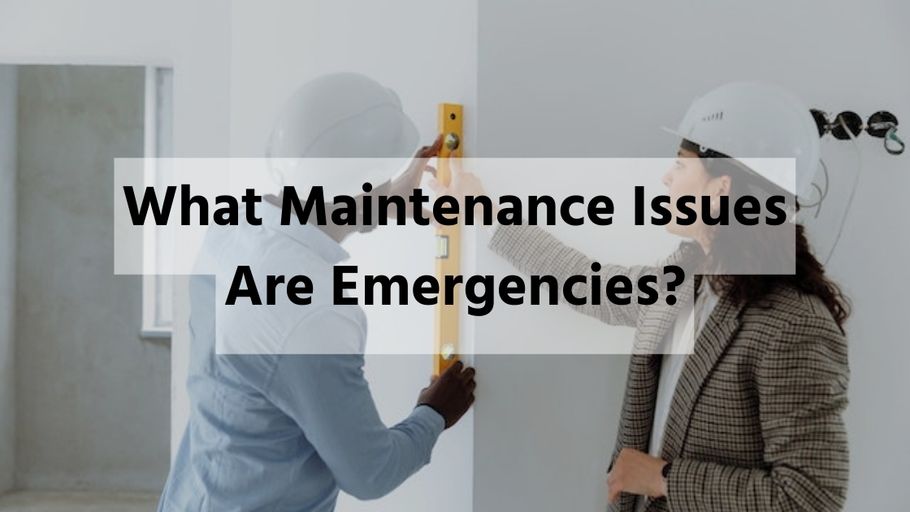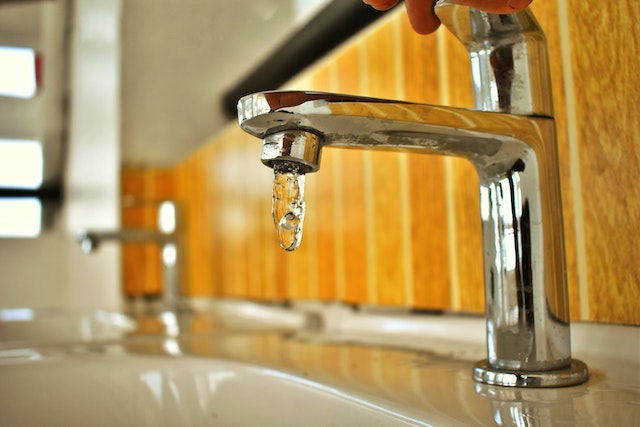What Maintenance Issues Are Emergencies?

Are you constantly juggling between maintenance requests, unsure of what requires immediate attention? As a landlord, distinguishing between emergent and non-emergent maintenance issues is crucial for both the safety of your tenants and the longevity of your property.
This article indicates what constitutes a maintenance emergency and what can wait until regular business hours. Understanding this distinction will not only help in prioritizing tasks but also in maintaining a good landlord-tenant relationship.
Dive in to explore real-life scenarios, practical tips, and how to communicate effectively with your tenants regarding maintenance protocols. Your proactive approach today can prevent a minor issue from turning into a costly repair tomorrow.
What Are Emergency Maintenance Issues?
An emergency maintenance issue refers to a situation that poses an immediate threat to the safety, health, or security of the tenants or could potentially cause significant damage to the property if not addressed promptly. Some common examples include:
- Gas Leaks: A gas leak is extremely dangerous and requires immediate attention to prevent potential explosions or poisoning.
- Electrical Hazards: Exposed wiring, sparks, or any other electrical dangers that could lead to a fire or electrocution need to be dealt with urgently.
- Water Leaks or Flooding: Uncontrolled water leaks can cause flooding, which in turn can cause severe damage to the property and personal belongings.
- Heating Failure during Extreme Cold: In the dead of winter, heating failure can be life-threatening, especially in regions with severe cold temperatures.
- Sewage Backups: Sewage issues can pose serious health hazards and need to be rectified immediately.
- Broken Locks or Windows: These issues can compromise the security of the tenants and should be fixed without delay.
- Fire: Any fire, regardless of size, is an emergency that requires immediate attention.

Addressing these issues promptly not only ensures the safety and satisfaction of your tenants but also preserves the integrity and value of your property. On the other hand, non-emergency maintenance issues are those that, while they may cause inconvenience, do not pose immediate dangers and can wait to be addressed during regular business hours.
What Are Non-Emergency Maintenance Issues?
Non-emergency maintenance issues in a rental property are those that, while they may cause inconvenience or discomfort, do not pose immediate threats to the safety, health, or security of the tenants, nor are they likely to cause significant damage to the property if left unattended for a short period. Here are some examples of non-emergency maintenance issues:
- Minor Plumbing Issues: Slow-draining sinks or minor leaks that are easily contained may not require immediate attention.
- Appliance Malfunctions: Non-essential appliances like dishwashers or washing machines malfunctioning can typically wait for a scheduled repair.
- Pest Control: Minor pest issues may be annoying but often don’t constitute an emergency.
- Heating or Air Conditioning Issues in Mild Weather: If the weather is mild, heating or AC issues may not be urgent.
- Cosmetic Issues: Problems like chipped paint, worn carpeting, or other aesthetic concerns are not considered emergencies.
- General Wear and Tear Repairs: Routine maintenance tasks or repairs stemming from normal wear and tear usually fall into the non-emergency category.
- Loose Fixtures: Items like a loose doorknob, faucet, or other fixtures may not require immediate attention.

Mastering Emergency Maintenance: A Landlord’s Guide
This guide aims to equip apartment landlords with practical tips to efficiently tackle emergency maintenance, ensuring the safety and satisfaction of your tenants while adhering to legal responsibilities. Let’s delve into these pivotal strategies:
Ensuring 24/7 Reachability
Being reachable at all hours is crucial for addressing emergencies promptly and maintaining a great, long-term tenancy. As a landlord, you should provide your tenants with multiple channels of communication such as phone, email, or a dedicated emergency hotline.
Prompt response not only alleviates the issue at hand but also builds trust and a sense of security among your tenants. Moreover, being reachable fosters a professional image and can potentially mitigate legal issues that might arise from delayed responses to emergencies.
Establishing a Network of Emergency Services
Having a reliable network of emergency service providers is a cornerstone of effective emergency maintenance management. Establish relationships with local plumbers, electricians, locksmiths, and other essential service providers who are available for emergency calls.
It’s advisable to have agreements in place, ensuring they prioritize your properties in case of emergencies. This network will enable you to respond swiftly and competently when emergencies occur, minimizing damage and ensuring the safety and comfort of your tenants.
Maintaining Open Communication Channels
Open communication is key during emergencies. Inform your tenants on how to report emergencies and what to expect during such situations. It’s also vital to keep them updated throughout the resolution process, explaining what steps are being taken to fix the issue.

This transparency will ease tenant anxiety and demonstrate a proactive approach to problem-solving. Additionally, consider collecting feedback post-resolution to improve your emergency response procedures continually.
Understanding and Upholding Landlord Responsibilities
Knowledge of your legal responsibilities as a landlord is fundamental. Familiarize yourself with local laws and regulations concerning emergency maintenance in rental properties. Ensure that your properties meet all safety standards and are well-maintained to prevent potential emergencies.
Moreover, keeping a well-documented record of all maintenance activities can serve as proof of your diligence in upholding safety standards, which can be invaluable in case of legal disputes.
Bottom Line
Distinguishing between emergency and non-emergency maintenance issues is a cornerstone of effective property management. It not only ensures the safety and satisfaction of your tenants but also helps in prioritizing tasks efficiently. While handling these issues might seem daunting, remember, you don’t have to do it alone.
Partnering with a seasoned property management company like IPM Property Management can significantly lighten the load. They bring a wealth of experience and resources to tackle maintenance issues promptly, ensuring your property remains in top-notch condition round the clock.
So, take a step towards hassle-free property management and explore what IPM Property Management can do for you.
